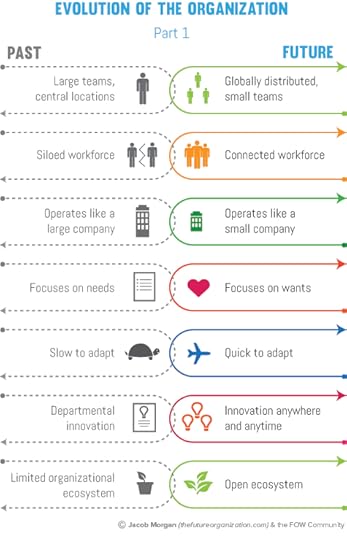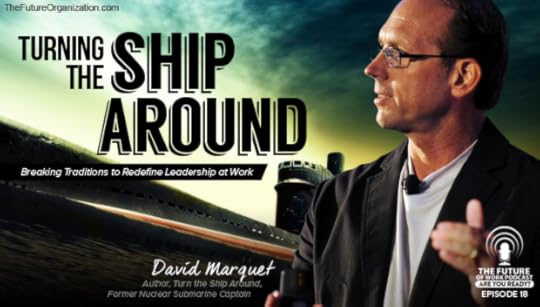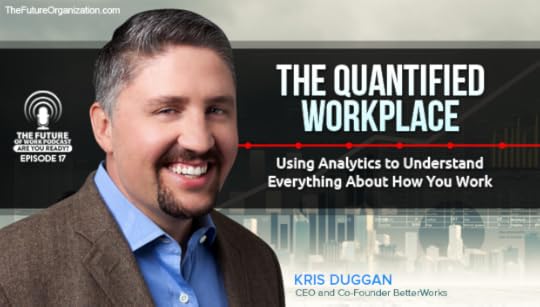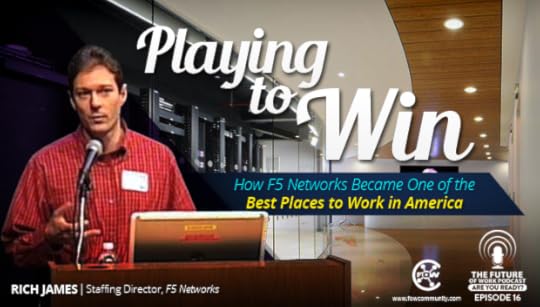Jacob Morgan's Blog, page 26
January 30, 2015
Why You Should be Paying Attention to “Wearables”
Wearable devices are making their way into our professional and personal lives. Fitness trackers (Fitbit, Jawbone, Nike), eyewear (Google Glass, Microsoft Hololens, MetaPro), smart watches (Pebble, Fitbit Surge, Apple Smartwatch) , clothing with sensors (Athos smart pants, AiQ), and the like, are all examples of wearable devices. Gartner predicts that by 2016 we will see around 100 million wearable devices sold and some estimates see this number being much higher. In the latest episode of The Future in 5 I explore how and why wearables are making such a big impact in our lives. The cost of technology is decreasing, sensors are becoming smaller and cheaper, wearable devices are becoming more fashionable, and the internet of things is allowing all of these devices to connect to each other and to us. All of these trends are helping propel the popularity and utility of wearable devices in our personal and professional lives.
I’m a bit of a fitness nut and love gadgets so I also spend a few minutes reviewing the new Fitbit Surge “super watch” which the folks at Fitbit were kind enough to send over to me. Check out the latest episode of the The Future in 5 to learn more about wearable devices and the new Fitbit Surge.
 Send to Kindle
Send to KindleThe post Why You Should be Paying Attention to “Wearables” appeared first on .





January 29, 2015
Turning the Ship Around–Breaking Traditions to Redefine Leadership at Work
Click Here to Subscribe via iTunes
Click Here to Subscribe via RSS Feed (non-iTunes feed)
http://traffic.libsyn.com/futureofworkpodcast/David_Marquet_Podcast_Done.mp3
The one stat you need to know
The spirit of leadership is often misjudged as a gainful way of exercising control, leading to chaos. In essence, it should be recognized as a model that gives more weight to “Giving Control” over “Taking Control”.
What this episode is about and why you should care
David Marquet, a former submarine captain and author of “Turn the Ship Around!” unlocks a new angle in redefining leadership. In this podcast, he goes into retrospect and relates his journey as the newly appointed captain of nuclear-powered submarine, “USS Santa Fe”. During his active days, he sought measures to counteract all odds to fight the low self-esteem of his crew. As a captain, David fought against his instincts and explored newer ways of unifying his workforce, breaking accepted norms of leadership. For a corporate environment, the Santa Fe episode presents a stunning example of effective leadership that acts as a harbinger towards making every employee a leader.
What you will learn in this episode
“Ladder of leadership”– Re-defining decisions in an organizational framework
What is driving companies to rethink on their management model?
Why building decision making capacity in your organization is important?
How clarity helps to build a unifying workforce? How to achieve “greatness” as a mechanism?
Trust and Competence – How do you differentiate?
How “Smart Hierarchy” will change the way companies operate?
How leaders are going to change the work environment in the future?
Links from the episode
Turn the Ship Around
 Send to Kindle
Send to KindleThe post Turning the Ship Around–Breaking Traditions to Redefine Leadership at Work appeared first on .





January 26, 2015
Evolution �of the Organization Pt. 1
This concept a~d visual was taken from my new book, The Future of Work: Attract New Talent, Build Better Leaders, and Create a Competitive Organization.
A few weeks ago I introduced the concept of The 14 Principles of the Future Organization which outlines the crucial characteristics that organizations must have in order to succeed in the new business landscape that we are seeing emerge. For quite a while now I have been writing about and exploring how employees, managers, and organizations are evolving. To specifically show how organizations are evolving from past to future I wanted to create an image that depicts the “Evolution of the Organization.” This follows the same theme as: The Evolution of the Employee and The Evolution of the Manager
This is part 1 of the image:

Teams
Jeff Bezos has the “two pizza rule,” meaning that any team should be able to be fed by just two pizzas; if not, then the team is too large. We are seeing a big shift away from large structured centrally located teams to smaller more globally distributed teams which are held together by technology. As long as team members can access to the internet it doesn’t matter where they are located.
Workforce
I may sound like a broken record when I say this, but the future of work is absolutely about breaking down barriers between teams and geographies. Sales should be speaking with product development, marketing should be speaking with customer service and support, and engineering should be speaking solution delivery teams. The traditional model saw only people in the same team or physical location share and collaborate; no more. The organization of the future is a connected organization where information, collaboration and communication happens without boundaries.
Operational Model
There’s a reason why large organizations are stereotyped as being slow-moving, bureaucratic, old-fashioned, and simply outdated…because many of them are. Larger organizations are at a high risk for being disrupted (just take a lo
 Send to Kindle
Send to KindleThe post Evolution �of the Organization Pt. 1 appeared first on .





Evolution of the Organization Pt. 1
This concept and visual was taken from my new book, The Future of Work: Attract New Talent, Build Better Leaders, and Create a Competitive Organization.
A few weeks ago I introduced the concept of The 14 Principles of the Future Organization which outlines the crucial characteristics that organizations must have in order to succeed in the new business landscape that we are seeing emerge. For quite a while now I have been writing about and exploring how employees, managers, and organizations are evolving. To specifically show how organizations are evolving from past to future I wanted to create an image that depicts the “Evolution of the Organization.” This follows the same theme as: The Evolution of the Employee and The Evolution of the Manager
This is part 1 of the image:

Teams
Jeff Bezos has the “two pizza rule,” meaning that any team should be able to be fed by just two pizzas; if not, then the team is too large. We are seeing a big shift away from large structured centrally located teams to smaller more globally distributed teams which are held together by technology. As long as team members can access to the internet it doesn’t matter where they are located.
Workforce
I may sound like a broken record when I say this, but the future of work is absolutely about breaking down barriers between teams and geographies. Sales should be speaking with product development, marketing should be speaking with customer service and support, and engineering should be speaking solution delivery teams. The traditional model saw only people in the same team or physical location share and collaborate; no more. The organization of the future is a connected organization where information, collaboration and communication happens without boundaries.
Operational Model
There’s a reason why large organizations are stereotyped as being slow-moving, bureaucratic, old-fashioned, and simply outdated…because many of them are. Larger organizations are at a high risk for being disrupted (just take a look at what’s happening with IBM) which means they need to learn how to operate like smaller companies. However, a paradox exists. As organizations grow so does their complexity which results in more sluggishness. However, these same organizations also want more profits which means they have to grow. So, they are stuck with trying to find a way to grow while becoming less complex. I talk about this much more in my book including exploring a few possible scenarios.
Organizational Focus
Organizations around the world have been making a various dangerous assumption; assuming that employees would work there because they needed to. Years ago this was definitely the case as there was really only one way to make a living. However as Dan Pink rightly commented, “today talented people need organizations less than organizations need talented people.” This means that organizations have to shift their focus from creating a place where they assume people NEED to work there to creating an environment where people WANT to work there.
Adaptation
Going forward “late adopter” means “out of business.” Years ago organizations had the luxury of seeing what their competitors were doing and then quickly following on their heels. Today that is no longer true. Organizations must adapt quicker and more aggressively if they wish to thrive in this new rapidly changing business world.
Innovation and Ecosystems
Innovation was something that used to be done only by a specific department within an organization. Today we are seeing a completely new model of innovation opening up based on ecosystems which includes employees, customers, partners, the general public, and yes, even competitors. Organizations that create these ecosystems will thrive.
Part 2 of this image will be released in the next few days and I will explore these topics in more detail here in blogs, videos, and podcasts interviews. But for now I hope this gives you some food for thought!
 Send to Kindle
Send to KindleThe post Evolution of the Organization Pt. 1 appeared first on .





January 23, 2015
What Does Your Corporate Culture Look Like?
In this video I talk about corporate culture while visiting Mulesoft in San Francisco. They were recently ranked as one of the “Best Places to Work” by GlassDoor so I went to check them out. Corporate culture means a lot of things and is impacted by everything from the physical office setting to perks and benefits to how approachable your manager is. Think about what your corporate culture looks and what changes you can make to improve it. In the video I also give you a tour of Mulesoft’s offices. Enjoy!
 Send to Kindle
Send to KindleThe post What Does Your Corporate Culture Look Like? appeared first on .





What Does Your Corporate Culture Look Like
In this video I talk about corporate culture while visiting Mulesoft in San Francisco. They were recently ranked as one of the “Best Places to Work” by GlassDoor so I went to check them out. Corporate culture means a lot of things and is impacted by everything from the physical office setting to perks and benefits to how approachable your manager is. Think about what your corporate culture looks and what changes you can make to improve it. In the video I also give you a tour of Mulesoft’s offices. Enjoy!
 Send to Kindle
Send to KindleThe post What Does Your Corporate Culture Look Like appeared first on .





January 22, 2015
From the Quantified Self to the Quantified Workplace
Click Here to Subscribe via iTunes
Click Here to Subscribe via RSS Feed (non-iTunes feed)
http://traffic.libsyn.com/futureofworkpodcast/kris_duggan_done.mp3
What this episode is about and why you should care
January 21, 2015
Why Managers MUST be Leaders
Anyone within an organization has the potential to become a leader, but managers MUST be leaders. In schools and in our organizations we have been taught and conditioned to believe that managers and leaders are two separate people which is quite a harmful assumption. As a result we have managers who cannot lead and leaders who cannot manage. A leader who cannot manage has a vision of where they want to go but no idea of how to get there. A manager who cannot lead is not able to build trust and create engagement within an organization to get to where they need to go. Neither of these scenarios are practical or effective.
Management and managers are human inventions that were designed with a single purpose in mind, to enforce controls and protocols. The role of a manager was to make sure that employees showed up on time, did their jobs, didn’t cause any problems, and showed up the next day to repeat the process. There was no emphasis on creativity, innovation, engagement, empowerment, or the like; nor was there a need for any of these things. However today we live and work in a very different world where all of these things are essential. This means that managers MUST be leaders. I believe we have reached an important tipping point which is forcing us to rethink managers and management altogether. I have been exploring this in a series of posts which you can find here (with much more on the way):
The Five Trends Shaping the Future of Work
The 7 Principles of the Future Employee
The Evolution of the Employee
The 10 Principles of the Future Manager
The Evolution of the Manager
The 14 Principles of the Future Organization
The stereotypical manager focuses on control, delegation, productivity, the bottom line, process, and efficiency. The leader focuses on vision, engagement, big ideas, empowerment, innovation, and transformation. One without the other is meaningless. Jeff Bezos and Steve Jobs are of course considered to be great leaders in the world of business, but do you think that they didn’t know how to build a team, look at the bottom line, execute strategies, and improve productivity? Of course they did. We don’t need to look to the likes of Bezos or Jobs, any manager regardless of how junior or senior needs to be able to come up with big ideas, inspire employees, take on a certain degree of risk, or engage team members. We spend a lot of time taking people in positions of power and trying to train them to be leaders when we should be finding the leaders inside of our organizations and training them to be managers. The only thing worse than working for a manager that can’t lead is missing out on the opportunity to turn our existing leaders into managers. We need to stop assuming that “managers” is a dirty word, if managers must be leaders then they should be looked at with a positive lens.
Greg Schott, the CEO of Mulesoft is a MANGER that personally interviews every candidate that applies to work there.
Todd Etter, the chief collaboration officer of The Motley Fool is a MANGER who uses games to inspire and engage his employees.
Lynanne Kunkel, the VP of Global Talent Development at Whirlpool is a MANGER that recently helped introduce a program across the company that instills the values of leadership and innovation across all employees.
Bob Chapman, the CEO of Barry-Wehmiller Companies, is a MANAGER who measures “heart count” at his company to look at how engaged and happy the employees are.
Scott Abel, the CEO of Spiceworks, is a MANGER who has something called “slices with Scott” where he orders pizzas for the whole company who then gets to spend hours asking Scott any question they want whether it be “what’s our company strategy going forward” to “how come you don’t have kids.”
We can no longer afford to segment and separate managers and leaders, this does nothing but hurt our organizations. If you want to formally be placed in a position of “power” where you help drive your organization forward then the pre-requisite for this is that you must be a leader. That is, you have earned followers, you have built trust among your co-workers, and you are able to think big and inspire others. But if you are not a leader at your organization than you should also not be a manager.
Management and leadership need to be taught in schools as interconnected disciplines that cannot exist without the other. Leaders within organizations should be mentored so that they know how to properly manage. We must stop referring to leaders and managers as two separate people. And perhaps most importantly, we need to give leaders at our organizations the opportunity to be officially recognized as managers. Only then will we be able to create organizations where employees are engaged, organizations that are able to attract and retain top talent, and organizations that are capable of surviving and thriving in a rapidly changing world.
Wouldn’t you want to work for an organization where all the managers are leaders? Wouldn’t you want to be that kind of a manager?
 Send to Kindle
Send to KindleThe post Why Managers MUST be Leaders appeared first on .





January 16, 2015
Are Hierarchies Evil?
In this episode of the Future in Five, I share my views about hierarchy and whether it’s a necessary evil. Many companies around the world are trying to “flatten” their structure but there should be some balance between being “flat” and “hierarchical.” I call this creating a “flatter” company. Some hierarchy doesn’t HAVE to be a bad thing provided that communication and collaboration can flow in any direction. Check out the video to learn more!
 Send to Kindle
Send to KindleThe post Are Hierarchies Evil? appeared first on .





January 15, 2015
Playing to Win–How F5 Networks became one of the Best Places to Work in America
Click Here to Subscribe via iTunes
Click Here to Subscribe via RSS Feed (non-iTunes feed)
http://traffic.libsyn.com/futureofworkpodcast/Rich_James_Podcast_Done.mp3
The one stat you need to know
F5 Networks was recently ranked #4 on GlassDoor’s top 50 companies in America to work for.
What this episode is about and why you should care
F5 Networks recently made it to Glass door’s 50 Best Places to Work. Richard James, Director of Staffing gives an insider look at what makes F5 stand out. Richard introduces us to the inside world of F5 and how the company is committed towards making a difference. That F5 is governed by its core values of excellence and collaboration, resonates with the company’s outlook towards meeting new challenges. Richard also shares his perspective on the company’s culture and employee management, which makes F5 a great place to work.
What you will learn in this episode>
What makes F5 Networks a coveted place to work?
How F5 is governed by its “seven core values”
Why “being listened to” makes a difference?
Understanding the end objective of an organization
How F5 is able to scale its “start-up” feel from close quarters?
Why focusing on perks and benefits isn’t the only way to create a great culture?
What advice Richard has for other organizations looking to create a great place to work?
Links from the episode
F5 Networks
 Send to Kindle
Send to KindleThe post Playing to Win–How F5 Networks became one of the Best Places to Work in America appeared first on .











